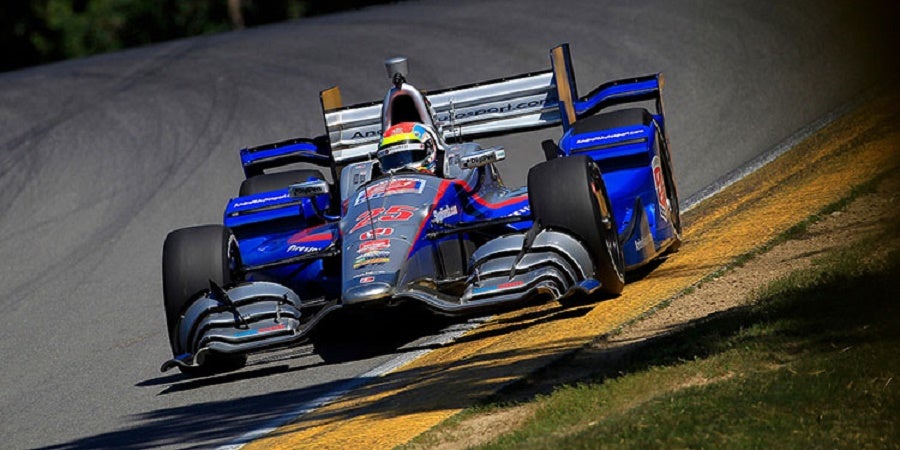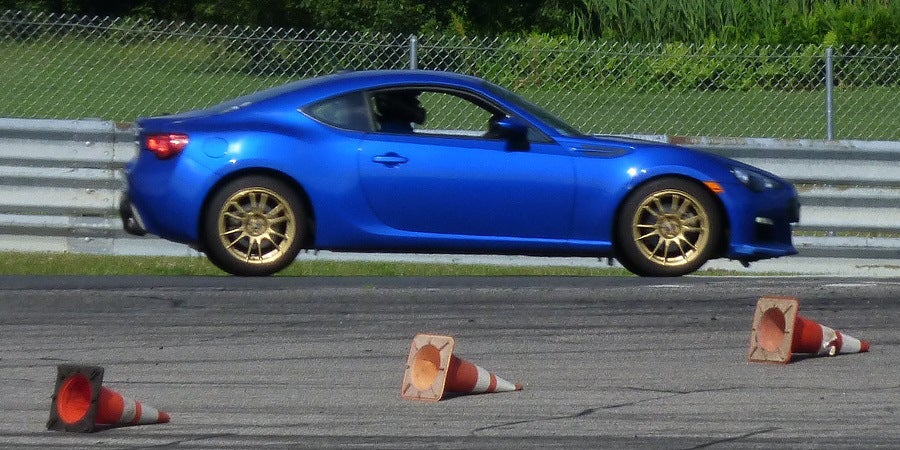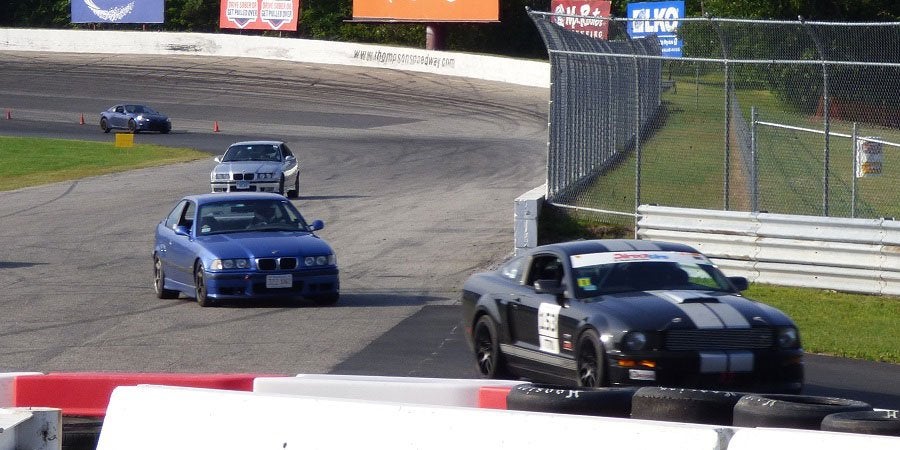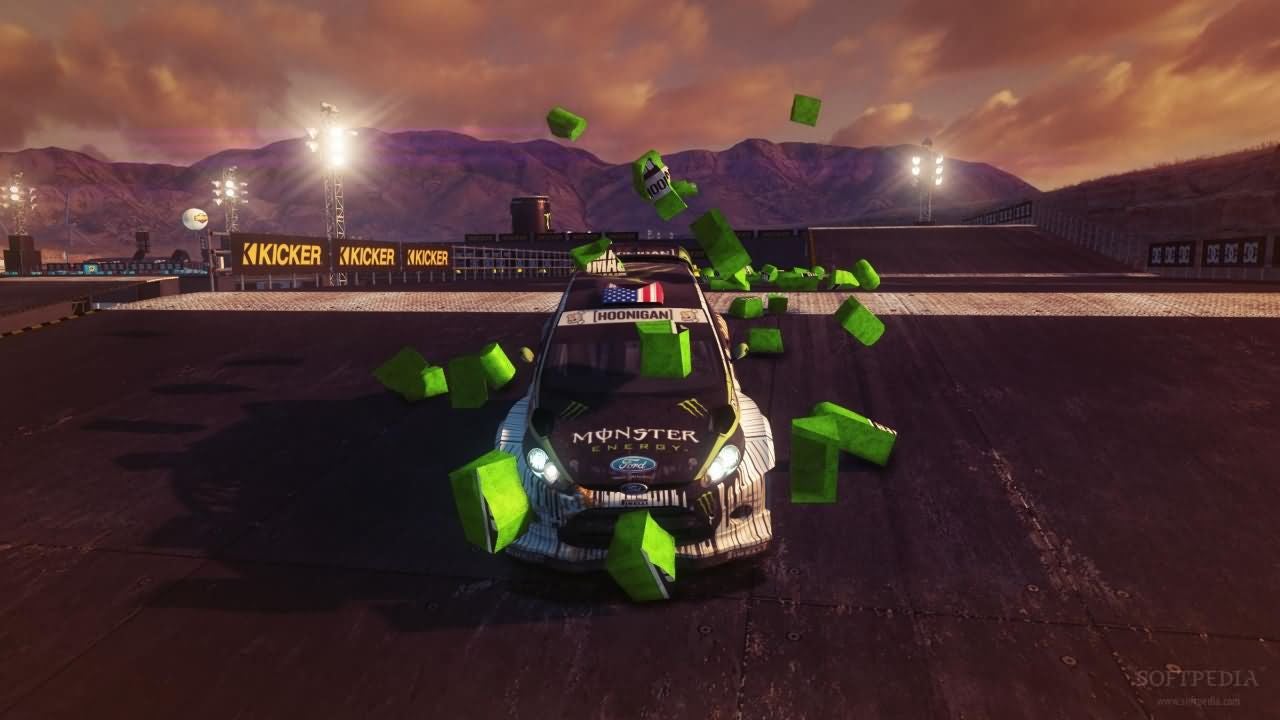 "Justin Hughes" (justinhughes54)
"Justin Hughes" (justinhughes54)
08/27/2015 at 08:00 • Filed to: Why we race
 11
11
 17
17
 "Justin Hughes" (justinhughes54)
"Justin Hughes" (justinhughes54)
08/27/2015 at 08:00 • Filed to: Why we race |  11 11
|  17 17 |

The death of racer and all around good guy !!!error: Indecipherable SUB-paragraph formatting!!! has hit the racing and enthusiast community hard. Though I didn’t know him myself, we share a name, he’s younger than me, and I know someone who was at that race, and had a nice chat with him Sunday morning. But anytime a racer dies, no matter who it is, what car they drive, or what series they race in, it always hits us right in the feels.
!!!error: Indecipherable SUB-paragraph formatting!!!
!!! UNKNOWN CONTENT TYPE !!!
There’s an inherent risk to taking a big lump of metal, plastic, and carbon fiber, and pushing it and yourself to the limits of speed and control on the track. Things can go very wrong very quickly. Wilson did nothing wrong himself – it was Sage Karam who lost control and hit the wall ahead of him. But Karam isn’t to blame, either. He hit no other cars, and his severed nosecone hitting Wilson in the head was a freak accident that only chaos theory has a chance of explaining. Despite all of the safety precautions, things can still go pear-shaped.
This is still true at the amateur level. There’s a reason why we all have to sign a long liability waiver before we can even enter a parking lot strewn with cones, let alone a race track. People have occasionally died at HPDE events, and, though it’s extremely rare, even at autocrosses. I’ve personally seen someone get hit by car that skidded off an autocross course. Fortunately he only suffered bumps and bruises, but it shows you don’t even have to be in a car to get hurt.
So why do we risk it?
“Racing is life. Anything before or after is just waiting.”
Steve McQueen was a racer himself, and his line from
LeMans
is often quoted to answer this question. It’s true of any potentially risky sport. Motorcyclists routinely accept that every ride could be our last, but we do it anyway because we accept the risks, do what we can to mitigate them, and enjoy what we do so much that we choose to do it anyway. Skydiving, bungee jumping, and many other sports fall into the same category. I could just stay home and get my racing jollies through iRacing, with no risk to anything but my bank account. But it’s not the same as the real thing.
“There’s no point in living if you can’t feel the life.”
This key line from The World Is Not Enough is quite relevant in this context as well. A life where I wake up, go to work, go home, watch TV, go to bed, lather, rinse, repeat is not a life that I want to live. Living, to me, should involve getting out there and doing things. My day job may not be thrilling, but getting there in a sports car or on a motorcycle, rather than an everyday econobubble, makes life more interesting. I may write rather dry software documentation by day, but a few times a year I go to the track and pretend to be a race car driver. My BRZ is fun on the street, but only when I get it out on the track can I really start to use its full capabilities. Exploring those capabilities is fun, especially when there are real consequences if I do something stupid and spin off the track. It’s not the norm, but it does happen. I’ve helped piece together the front of an BMW M3 enough to get home after it kissed the wall after the uphill at Lime Rock.

Interestingly, when we talk about HPDE, autocross, and such, when we talk about risk, we tend to think far more about the car than our own personal safety. My BRZ is currently my only car, and I do buy HPDE insurance for the track events I participate in so I can afford to replace it if I ball it up. A while ago, I bought a Miata with a friend to share for autocross and track events to spare both of us from this fate. It was an inexpensive car, and two of us splitting the costs made it cheaper still. Taking the Miata to the track spared both of our daily drivers from risking damage at the track, and if we broke it on Sunday, we still had our daily drivers to get to work on Monday.
Read on Right Foot Down or continue below
But what about our personal safety? Other than the required Snell approved helmet, we tend not to think about it too much. Some of us invest in HPDE insurance for the car, but how many of us check to make sure our medical insurance will cover us in the worst case scenario? Some of us, particularly with convertibles, may add roll bars, and many of us add racing harnesses. But that’s more to meet the rules of the event’s sanctioning body than concern for our own safety. Most people I know who have added harnesses to their street/track car did it so that the harness would hold them in place better than the stock seat belt so they could drive the car better, without hanging onto the steering wheel tightly to not slide around in the seat. Safety, while still on the list, is a lower priority.
Still, in the types of events we tend to drive, the risk of bodily harm or death is quite small. Cars go off the track and sometimes hit solid objects, but people generally walk away with no harm except their pride. But make no mistake – the excrement can impact the rotational circulation device anytime, anywhere, and the consequences of a mistake at speeds you should never reach on the street are far more severe than what the car was designed to handle.

Like motorcyclists, we tend to accept that risk anytime we get in a car, put on a helmet, and exit pit lane. We know the risk is there, but we tend not to think about it, and instead focus on the task at hand – driving a car on a track to the best of our ability, as fast as possible within our limits, and safely.
Why do we do it? Because we love it. We love to drive fast, and rather than drive like idiots on the street, we take it to the track, where we’re allowed and encouraged to bomb through the turns as fast as the car will let us, then put the hammer down into triple digit speeds on the main straightaway. We’re able to drive the way we really want to drive, plus we have the opportunity to learn to drive better, improving our skills under these unique circumstances. Best of all, we take these skills with us back to the street, and have more control over our cars than most people on the road with us. One could argue that taking the risks of a track day pays off in improving your driving skills and further mitigating the risks of driving on the street. I also feel less tempted to take that on-ramp at 80mph, because I already know perfectly well that the car is capable of doing it at 90. I don’t have to prove it, because I already did on the track.
I could argue the educational and safety aspects some more, but let’s be realistic. We do it because we love to drive fast, enjoy our cars, and put them through their paces. In addition to the adrenalin rush of driving on the track itself, I also feel a lingering euphoria for a few days afterward, because wow, that was awesome. Like an addict, I keep coming back for more, because I love it. I know the potential consequences if I get it wrong. I accept that, and do it anyway, because that’s what living means to me.
(Top photo from !!!error: Indecipherable SUB-paragraph formatting!!! . Other photos by the author.)
!!!error: Indecipherable SUB-paragraph formatting!!!
 Santiago of Escuderia Boricua
> Justin Hughes
Santiago of Escuderia Boricua
> Justin Hughes
08/27/2015 at 08:36 |
|
I’d rather die sideways into a tree during a rally stage than old and senile
 facw
> Santiago of Escuderia Boricua
facw
> Santiago of Escuderia Boricua
08/27/2015 at 08:38 |
|
You can do both!
 qbeezy
> Justin Hughes
qbeezy
> Justin Hughes
08/27/2015 at 08:49 |
|
Need moar stars. The one thing I wonder though, would your health insurance be able to deny you if you happened to get hurt at a track...
 Ash78, voting early and often
> Justin Hughes
Ash78, voting early and often
> Justin Hughes
08/27/2015 at 09:00 |
|
I was a rock climber for years, leading mostly single-pitch (read: low to the ground and more likely to kill you) climbs, often traditionally — placing my own metal bits into cracks and clipping my rope into them. This is like a fitness-infused chess game that balances strategy and endurance with a shot of adrenaline.
But once my first kid arrived and I had more to live for, I started to re-examine this sport and ended up switching to mostly bouldering — a harder, but typically far safer, version of rock climbing where you leave the ropes behind and focus on physical challenges and movements close to the ground.
At some point I just realized that many “XXXXXtreeeeme sports” were just ways to quickly and cheaply hijack my inner adrenaline junkie. Many of them — like casual skydiving, bungee jumping, or rapelling — are almost completely contrived and lack any real sporting ethic (side note: formation skydiving, wingsuiting, etc are a whole different beast).
But auto racing isn’t quite like that. It’s clearly difficult and something you could spend a lifetime trying to master. It’s enjoyable, requires lots of skill and input, but at the end of the day is just like a lot of other sports where you have to assess your own risk profile and the other people at stake. So while I don’t bemoan the choices of guys like Dan Wheldon or Justin Wilson to keep up their sports with families, I just can’t imagine doing that professionally with a couple of young kids at home. That’s not to say they won’t be financially cared for, but losing a parent like this is going to cause them to question their dads’ choices for a very long time. People put way too much stock in the cliche “at least he was doing something he loved.” I’ve seen far too many people die and become seriously injured by games and sports — and the aftermath — to lean on that as an excuse, but it does tend to make us all feel a little better.
(Just so I’m not being one-sided, I feel almost the exact same way about someone being an NFL linebacker or any other professional, high-risk job done mainly for entertainment purposes.)
/rant off
//rip, justin
 Gonemad
> Justin Hughes
Gonemad
> Justin Hughes
08/27/2015 at 09:07 |
|
and sometimes hit solid objects,
This reminds me of a PC rally game where your objective is to hit blocks of foam during one of the race modes. Yes, the blocks of foam were the checkpoints! Is it a real autocross event? It sounds and looks fun, like a movie stunt where you hit cardboard boxes! And it looks safe enough to do at pretty low speeds... This subverts all our notions of safety, and trying to avoid hitting solid objects, in a pretty fun way. We are looking for fun in the end of the day, after all.

 Justin Hughes
> Gonemad
Justin Hughes
> Gonemad
08/27/2015 at 10:05 |
|
We’ll that’s sort of like Grand Theft Auto, where you do all kinds of things you would (hopefully) never do in real life because you can, without consequence. Unlike real life, you get another chance when you get five stars and finally get “wasted.”
 Wheelerguy
> Justin Hughes
Wheelerguy
> Justin Hughes
08/27/2015 at 10:08 |
|
!!! UNKNOWN CONTENT TYPE !!!
But, jokes about doing thyself aside, this is an excellent post, Justin Hughes.
 Justin Hughes
> Wheelerguy
Justin Hughes
> Wheelerguy
08/27/2015 at 10:13 |
|
Of course I can't help but read that in a thick Boston accent!
 Ben Crowe
> Justin Hughes
Ben Crowe
> Justin Hughes
08/27/2015 at 17:04 |
|
After every notable fatality, I often wonder to myself “why the f**k do I do this?” Usually, its with thoughts of the family and loved ones that have been left behind in the aftermath. It’s only when it goes pear shaped that you realise that motorsport is one of the most selfish activities one can do.
I’ve spoken at length to those close to me about the consequences of what could go wrong; I’ve put a clause in my will stating that no one is to be sued should something terrible occur. As much as I hate the cliché of “going out doing something you love”, it’s something that I’ve made clear to the aforementioned people in my life, and for the most part, they are understanding of my passion for racing, and my acceptance of the risk.
Why do I race? It’s the only thing I know. I come from a racing family. We didn’t play stick and ball sports growing up; we raced.
 Bump
> Ben Crowe
Bump
> Ben Crowe
08/28/2015 at 09:47 |
|
I have witnessed three fatals on a dirt track over the years. I have justified each one in my own brain with the thought that he went out full of adrenaline and with a smile of his face.
What more can a person ask for?
 Tipiak
> Bump
Tipiak
> Bump
09/01/2015 at 09:17 |
|
His dad to still be alive? /c
You see, it’s all about egoism. Why do the dad take risks to enjoy himself, why his son want his dad, preventing him to do anything dangerous ?
 burnedoneanddone
> Justin Hughes
burnedoneanddone
> Justin Hughes
09/01/2015 at 11:24 |
|
You probably didn’t mean to, but even your final sentence is a quote: “Because that’s what living means to me” is a Jimmy Buffett song, sort of about doing what you love. Nice work.
 Justin Hughes
> burnedoneanddone
Justin Hughes
> burnedoneanddone
09/01/2015 at 11:26 |
|
Thanks! I didn’t realize I’d quoted him while changing my attitude about wasting away again.
 Bump
> Tipiak
Bump
> Tipiak
09/01/2015 at 11:34 |
|
In this case dad was employed in a field that he was highly skilled at and provided a nice living for his family. Due to the overwhelming generosity of the racing community, his efforts will still provide a comfortable life and college fund for his family.
But if you are more comfortable I will amend my statement to “What more could a person ask for in the circumstances surrounding their death”.
My father passed away when I was 11, I don't remember airplanes being put in the air and donation accounts being set up when it happened. No regrets, just saying that death is part of life and you just gotta deal with it no matter what age.
 Declan Hackett
> Justin Hughes
Declan Hackett
> Justin Hughes
09/01/2015 at 13:04 |
|
Why do they do it?
I am not designed to come second or third. I am designed to win - Ayrton Senna
 Tipiak
> Bump
Tipiak
> Bump
09/01/2015 at 14:13 |
|
death is part of life and you just gotta deal with it no matter what age.
I completely agree with that, but it’s not a popular opinion, especially if you have a family. Also, putting someone in harms way because of your egoism/not assuming your responsibility (because you died or you know fuck it) is not popular either.
Sooo, in that case, he was a professional driver, so I’m sure he got his family covered. But us, regular dudes, trying to live the dream every other week on our time and money, it’s way more ‘dangerous’ and irresponsible.
I don’t expect everyone to understand, I just know I feel more like shit the more days I spend away from track-days and all those adrenaline generator.
 Bump
> Tipiak
Bump
> Tipiak
09/01/2015 at 15:15 |
|
I guess I do not see the "egoism" part of the equation. Dude made a living, in a profession only slightly more dangerous than cop, coal miner or truck driver.